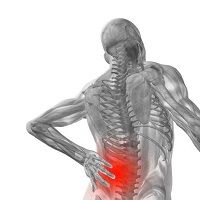Article
Back Surgery OK for Opioid-Tolerant Patients
Author(s):
Pain physicians and surgeons have concerns about performing back surgery on patients already taking opioids to control pain. A report from Massachusetts General Hospital researchers shows those concerns appear to be mostly unfounded.

Patients undergoing surgery to treat chronic back or neck pain are often already taking opioids.
The drugs often do not fully eliminate their pain so surgery becomes the next step.
Reporting at the American Society of Interventional Pain Physicians, Padma Gulur, MD and colleagues at Massachusetts General Hospital’s department of anesthesia, critical care and pain medicine in Boston, MA said there has been increasing concern that those on significant amounts of opioids at the time of spinal surgery could have poorer outcomes. Additionally, Gulur wrote in an abstract presented April 11 at the meeting, these patients might need alarmingly high doses of opioids to cope with post-surgical pain.
The group performed a retrospective cohort review of patients undergoing spinal surgery, mostly for pain, from January to June 2013 at Mass General. They compared opioid tolerant patients to controls for opioid use. The groups were compared three times: preoperatively, at discharge and at 6 to 12 months after their surgery.
Those who surgery was due to tumors or cancer, those who died shortly after surgery, and those having repeat surgeries for complications were excluded from the review.
In all there were 626 spinal surgery patients included. Of those 84 were classified as opioid tolerant.
At 6 to 12 months after surgery 71% of the opioid tolerant group were still taking the drugs, compared to only 28% in the control group. But of the opioid tolerant patients, 22 did not need the drugs at discharge, 38 were able to use lower doses and only 22 needed higher doses.
The group concluded that “the majority of patients on opioids preoperatively were on decreased to no opioids postoperatively,” and that the study “may indicate that spinal surgery helps to alleviate back pain in many patients.




